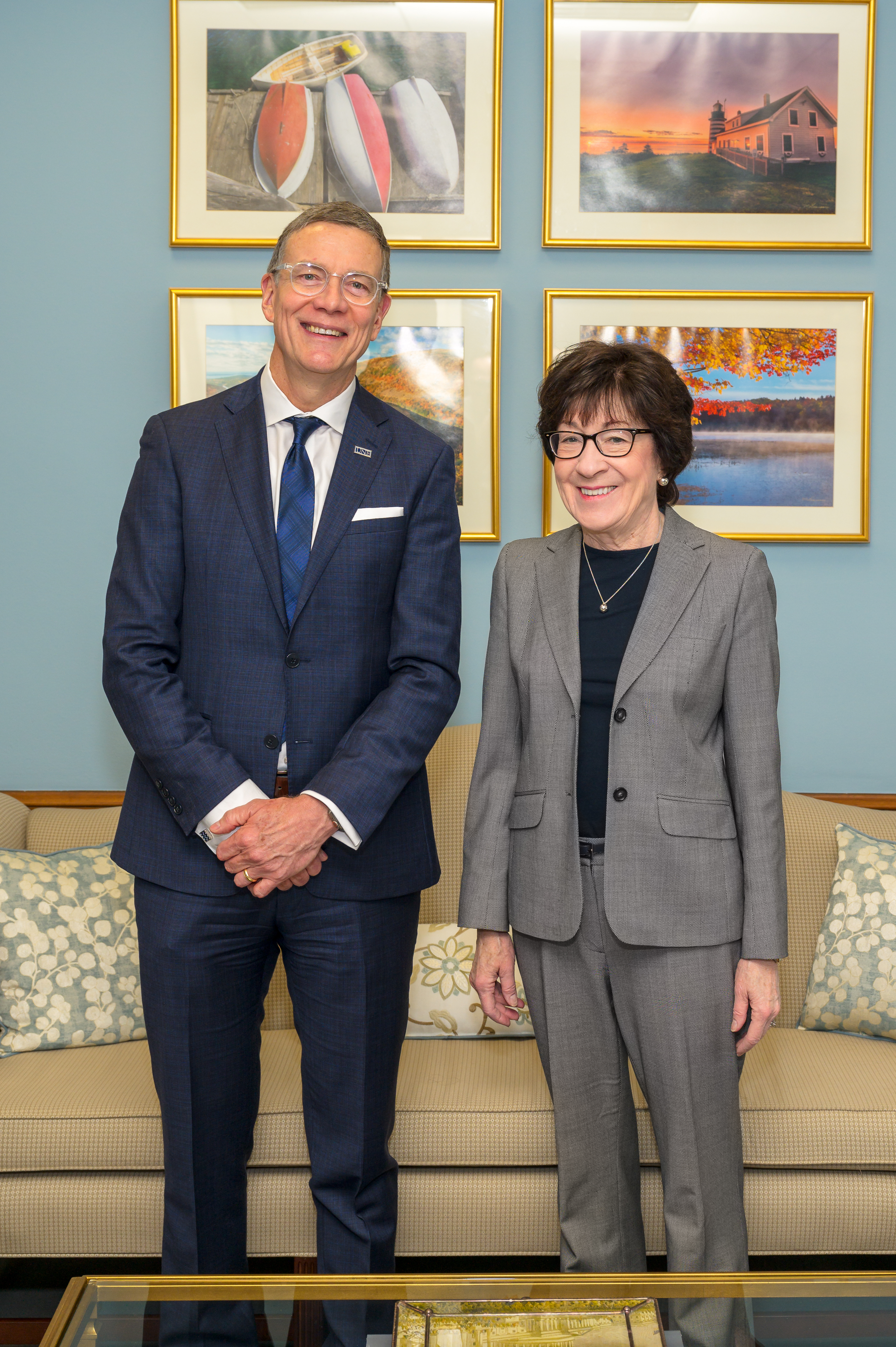Senator Collins Introduces UNE President at Hearing on Health Care Workforce Crisis
In 2021, almost 92,000 applications for nursing programs were turned away, with faculty shortages cited as a top reason. UNE is at the forefront of trying to close this gap.
Click HERE to download a high-resolution photo
Click HERE to watch Senator Collins’ introduction of Dr. Herbert. Click HERE to download.
Click HERE to watch Senator Collins’ Q&A with Dr. Herbert. Click HERE to download.
Washington, D.C.— Today, U.S. Senator Susan Collins introduced University of New England (UNE) President Dr. James Herbert to her colleagues on the Senate Health Committee. Dr. Herbert was testifying at a hearing focused on the need to address workforce shortages in the health care field.
According to the American Hospital Association, the United States will face a shortage of up to 124,000 physicians by 2033 and will need to hire 200,000 nurses per year to meet demand.
“It just is astonishing to me that…in 2021, almost 92,000 applications for baccalaureate and graduate nursing programs were turned away with faculty shortages cited as a top reason. And the University of Maine this year had 1,239 applications for only 80 slots,” Senator Collins remarked. “I think there's this misperception that people don't want to become nurses when, in fact, we have a ton of applicants from people who do want to enter the field of nursing, but we don't have the professors to teach them.
“That's why the Chairman and I, and the Ranking Member, have been working so hard to come up with a solution,” Senator Collins continued. “I want to know more from you on how we bridge the faculty gap. You mentioned in your testimony, Dr. Herbert, that in some cases, practicing clinicians can be recruited to serve as faculty instructors in their existing workplaces. Could you give the committee an example of how UNE is working with an academic institution or a hospital to expand training capacity?”
“First of all, I agree with everything you said. It is a real problem,” Dr. Herbert responded. “And you're also right that there's a lot of demand out there for people who want to become nurses and other health care professionals…[A]t UNE, we have increased the number of nurses we train 300 percent in the past 10 years. So we're continuously looking at how we can expand that.”
“A program along the lines that you're describing is something we are doing in partnership with MaineHealth,” Dr. Herbert continued. “[W]hat we're doing is we're actually using the faculty on site, using nurses on site, we provide professional development and support from the University to have them train people on site in the Maine Health…hospital system. So, using clinicians, this is part of that laddering approach. We're also training the nurses upskilling, the nurses, going from LPNs to RNs, RNs to BSNs, BSNs to nurse practitioners on site in partnership with MaineHealth. We're looking to expand that program with other health care programs as well. So, trying to find creative ways of addressing the faculty shortage.”
Dr. Herbert has served as president of UNE since 2017. UNE ranks in the top 20 medical schools nationally for educating primary care physicians, particularly those trained in rural medicine. UNE is the largest provider of health professionals to the State of Maine, the only medical school in Maine, and also offers northern New England’s only dental school.
Dr. Herbert previously testified before the Primary Health Subcommittee in 2021 at the invitation of Senator Collins, who served as the ranking member of the subcommittee.
In addition to Dr. Herbert, witnesses at today’s hearing included Dr. James E.K. Hildreth, CEO of Meharry Medical College; Dr. Sarah Szanton, Dean of John Hopkins School of Nursing; Dr. Leonardo Seoane, Chief Academic Officer at Ochsner Health; and Dr. Douglas Staiger, Professor at Dartmouth College.
###
